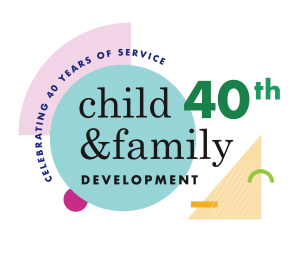By: Ashley Godwin, CCC-SLP, Child & Family Development
Let’s face it, there are a million things out there on the web about when to start introducing solids, which solids to introduce first, whether it’s better to make your own baby food or buy it, and how to introduce solids to your baby for the first time in general. It can be exhausting, trust me I know! I am a mom of a 2-year-old boy and a 6 month-old boy and I am also a speech therapist who specializes in feeding therapy. I thought it would be helpful to try and break it down in one article.
I would recommend discussing with your pediatrician the possibility of starting oatmeal or rice cereal sometime between 4-6 months of age. Rice cereal and oatmeal are used as a training tool for babies so that they can learn how to accept food from the spoon, take it into their mouth, and manipulate it to swallow before they really need the nutrition from the food. In the beginning, the oatmeal or cereal ends up everywhere and that is completely normal! This is a time for your child to explore and get messy! Eventually, through practice, your child will learn how to more efficiently take bites off of the spoon with a little less mess.
Around 6 months of age, you can discuss with your pediatrician, the possibility of beginning to introduce pureed baby foods. It is a personal choice whether or not you buy or make your own, but my recommendation would be to start with the green vegetables first, then work your way through the orange vegetables (a little more sweet), and then finish with fruits (the food that most babies love…natural sugar)! The reasoning behind this is to start with the more bland foods first since the baby has nothing to compare it to and then work towards the sweeter foods (which they are more than likely going to love). It is good to have the baby eat the same food for at least 3 days to a week to be sure that he or she is not allergic, and then switch to a new food. For example, you could try peas for 3 days and if the baby has no reaction, you know that was a “safe food” and you can move onto green beans. To make it easier on yourself you can keep a food journal so you know which foods you have tried and which foods are safe for your child. Once you have a good array of “safe foods” under your belt, you can start buying (or making your own) mixed foods (ex. carrots and peas; squash and corn; apples and bananas).
I would recommend holding off on pouches until your child is older as it is so important for your child to learn to eat from a spoon and then eventually be able to manipulate the spoon themselves! Although pouches are very convenient, it is best to hold off on those until at least 6 months of age or when your baby has gotten the hang of being fed from a spoon. We don’t want to hinder those early oral motor or fine motor skill development.
If you have a picky eater on your hands that can really change things. I will try to go more into this in another post in the future, so be on the lookout. My biggest advice with a picky eater would be to try and stay calm and to try to make mealtime a pleasurable experience. Your child can perceive so much more than you think so losing your cool, force-feeding, or showing visible signs of frustration can cause them stress and make them shut down even more. It is important to continue introducing your child to foods over and over, even if they have no interest in trying it. Sometimes it can take up to 10-15 times for a child to be exposed to food before they’ll even attempt at putting it into their mouth. Also, try to make mealtime as fun as possible. Use cookie cutters to cut shapes out of foods (or let your child cut them out), have meals in different places (ex. a picnic in the backyard, change seats at the dinner table, have a meal on the floor in the living room), let your child help you prepare safe foods, and let your child get messy! If you feel your child has an aversion to various textures, gags on certain foods, and/or tantrums at most mealtimes, it might be worth having a speech therapist do an evaluation to determine whether or not feeding therapy would be helpful!
To conclude, there is no right or wrong way to introduce your child to solids and there is no perfect time to do it. Enjoy this special time and new experience with your little one, be a good model, and most of all make mealtime an enjoyable experience for them. Food should be fun!
About the author: Ashley Godwin is a Licenced Speech Language Pathologist at Child & Family Development. C&FD has two locations, in Midtown and Pineville. Call today to schedule a free phone consultation with an expert in pediatric development.
Child & Family Development

Website
Facebook
Instagram
Twitter
Locations:
Mitdtown:
4012 Park Road, Suite 200
Charlotte, NC 28209
704.332.4834
Pineville:
10516 Park Road
Charlotte, NC 28210
704.541.9080



